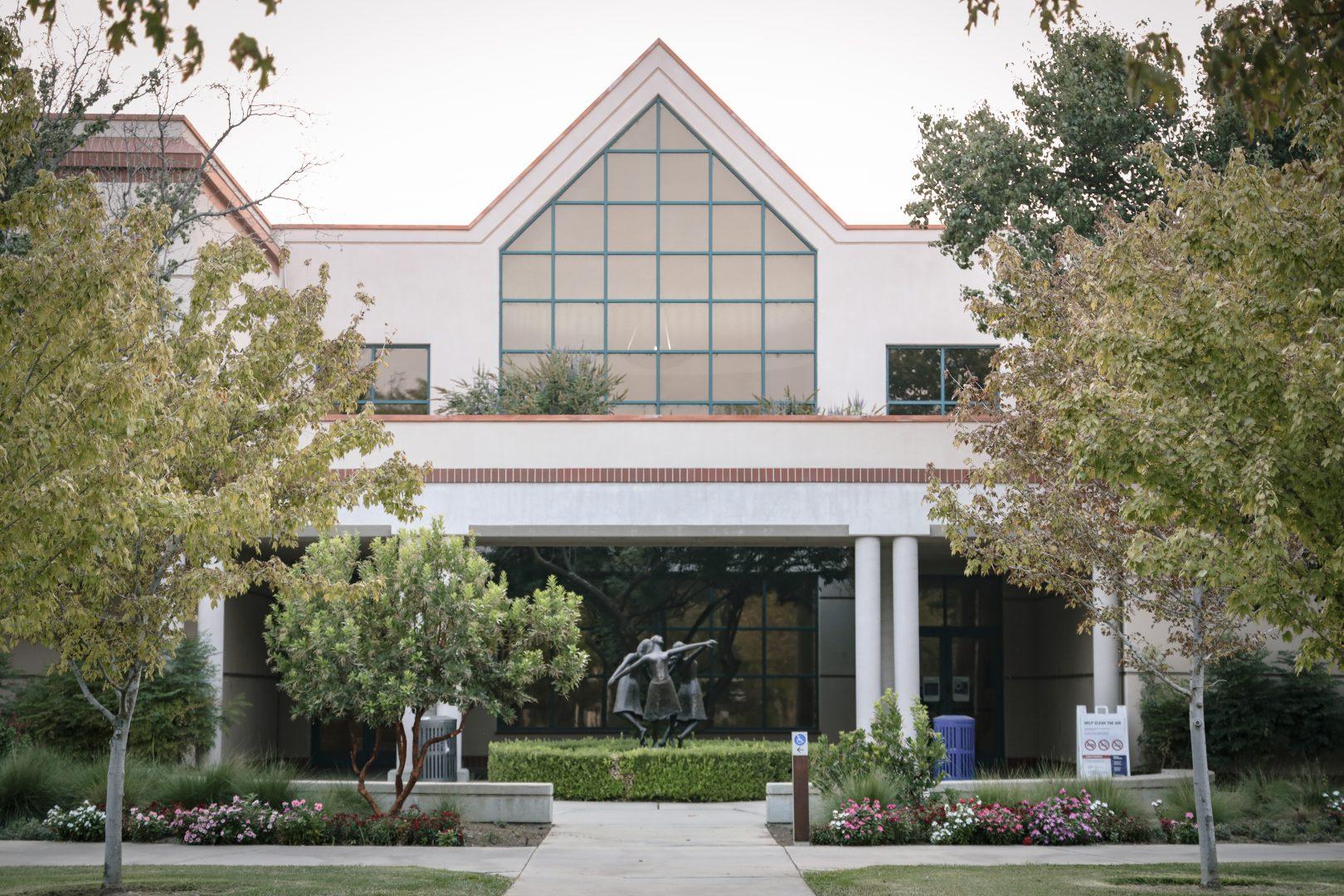The Fresno State music and theatre arts departments are tasked with the unique challenge of performing under COVID-19 guidelines and without audiences in the Fresno State Concert Hall and John Wright Theatre.
With “Darkside,” “Detroit ‘67” and “To Thine Own Self Be True: Gender, Sexuality, and the Bard” set to premiere this fall, the theatre department is preparing to stream all three shows online for the very first time.
The latter was chosen instead of “Dracula” because the department felt “Dracula” needed to be performed in person, J. Daniel Herring, the theatre department chair, said.
“It’s important for us as a department to have a practical experience for our students,” Herring said.
Online auditions took place from Aug. 12 through Aug. 18. Students had to submit a video of a monologue and one video of a reading provided by the department. The callback auditions were held via Zoom on Aug. 19 and Aug. 20.
Students are required to wear face masks, put on face shields and stay six feet apart from each other. The department will adhere to Fresno State’s guidelines of daily screenings and temperature checks, as well as reporting if an outbreak occurs in the department, Herring said.
To be able to follow the Centers for Disease Control and Prevention (CDC) guidelines, directors will have to structure the play in a way where actors can interact with each other while being socially distanced.
Candace Egan, professor of multimedia and video production in the media, communications and journalism department, will be working with the directors of “Darkside” and “To Thine Own Self Be True: Gender, Sexuality, and the Bard” to film the shows, Herring said.
Herring remains optimistic and although the department won’t be able to make the same amount of money from the usual ticket sales, he is hoping to make some revenue from streaming services. The theatre department hasn’t decided which online platform the shows will be streamed yet.
“We are budgeting conservatively,” Herring said. “Maybe there will be more people watching what we do than what we ever thought.”
The plays will be open to the public which will be a better opportunity for students’ families to see them perform, even if they live in different states.
Herring hopes that streaming the performances will give students a chance to see themselves act and see their families’ reactions to their performances.
“I have family in Boston that never gets to see my shows so hopefully they might be able to,” said Madeline Nelson, a sophomore in theatre arts.
Nelson, who will be playing Caroline in “Detroit 67,” auditioned and found the experience “nerve-wracking in a different sense.”
In contrast to a live audition, students couldn’t get an immediate reaction from judges and sometimes experienced some technical difficulties. Some of Nelson’s major concerns are getting the plays out, making sure people watch it and bringing awareness to what the theatre department is doing.
Department of Music
Unlike the theatre department, all music concerts, with or without an audience, have been canceled. The department is hoping to stream concerts online or perform outdoors in the future but nothing is confirmed, said Matthew Darling, the music department chair.
When it comes to classes, the Fresno County Department of Public Health has been a bit more lenient, allowing the symphony orchestra to meet face-to-face.
Only students with string instruments will be present in the band room. All other students will have to follow along at their houses via a live stream video, Darling said.
A maximum of 23 students and Thomas Loewenheim, conductor of the university orchestra, will be allowed in the class.
Darling believes in the professors’ creativity and in students’ patience and understanding.
“We have incredible faculty in our department and they are in communication with music faculty all around the country and internationally,” Darling said.
According to Darling, the university set up cameras and microphones in the band room in order to live stream the class to students.
Noah Armas, a music education graduate and saxophonist, feels defeated. Armas had to perform his senior recital through Zoom and felt like his experience was not exactly what he expected but it turned out to be alright for him.
Armas started the teaching credential program this semester and although he feels discouraged, he knows his teachers have been advocating for students.
From what Armas has seen on social media, he feels like new incoming students have been pessimistic and reluctant to see how teachers are helping them.
“We have a good department, they [the students] just need to be patient,” Armas said.
For small and minor ensembles, music teachers have relied on apps like Bandlab and Flipgrid to teach their students remotely.
The department also purchased new percussion instruments this semester to help students during virtual instruction. By appointment, students can rent their instruments for $45 for the whole semester.
As far as safety protocol, the department will follow CDC guidelines by spacing out every student in the band room, making students wear a mask and confirming that students fill out the campus’ health screenings and temperature checks.
Cleaning procedures have always been implemented in the music department and will be more strict than ever once the students return their instruments by the end of the semester, Darling said.
Darling believes that the department of music has and will face difficulties but knows the arts will survive.
“We have always survived,” Darling said.




